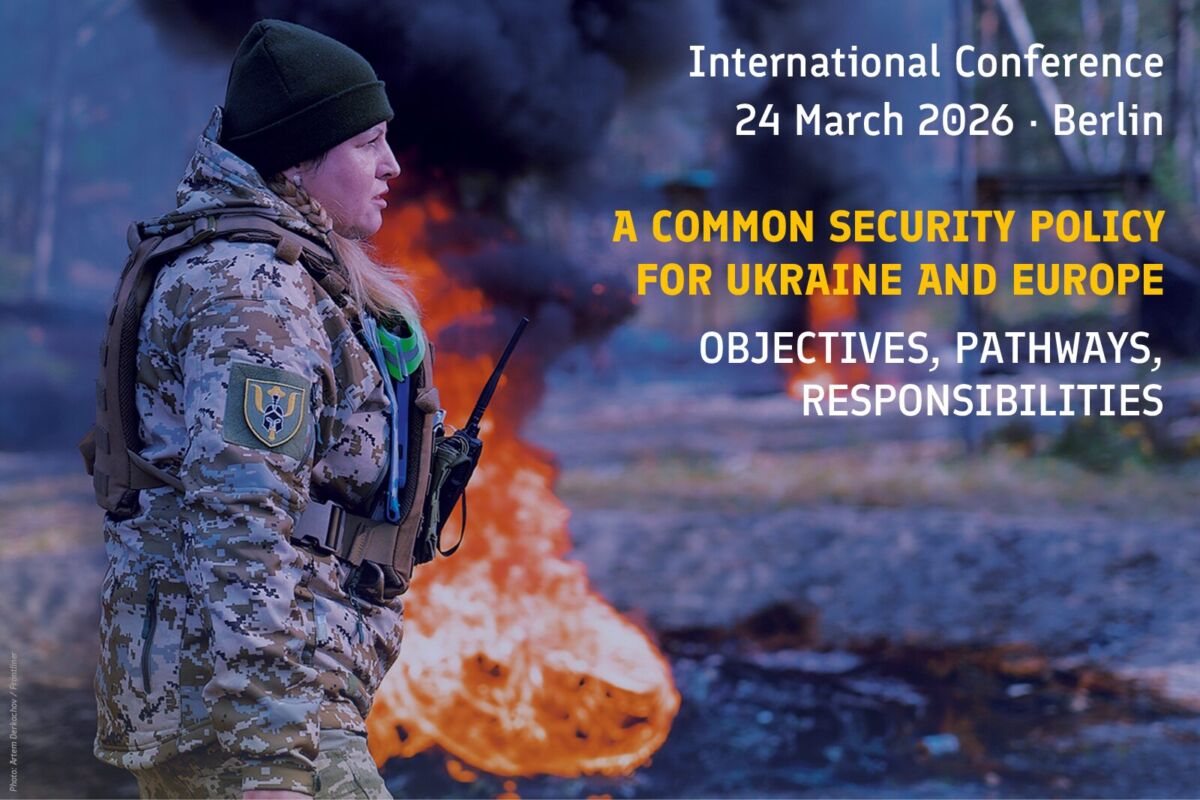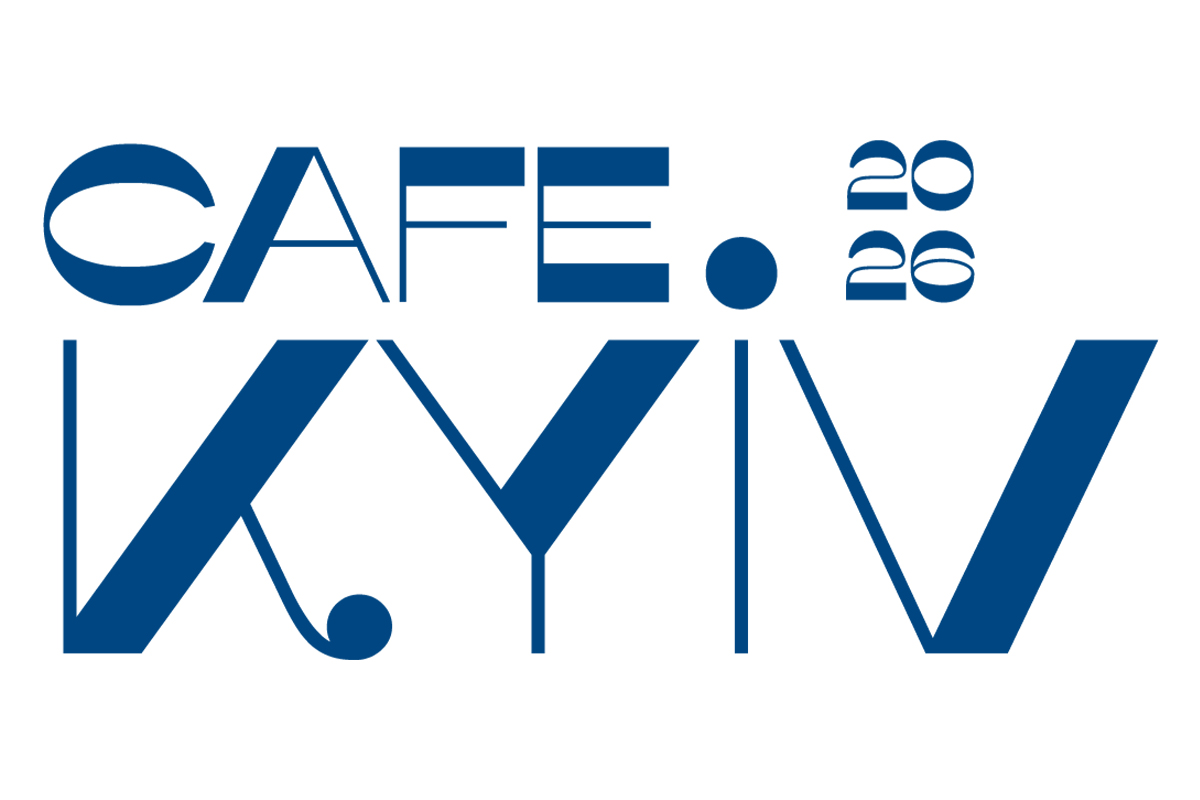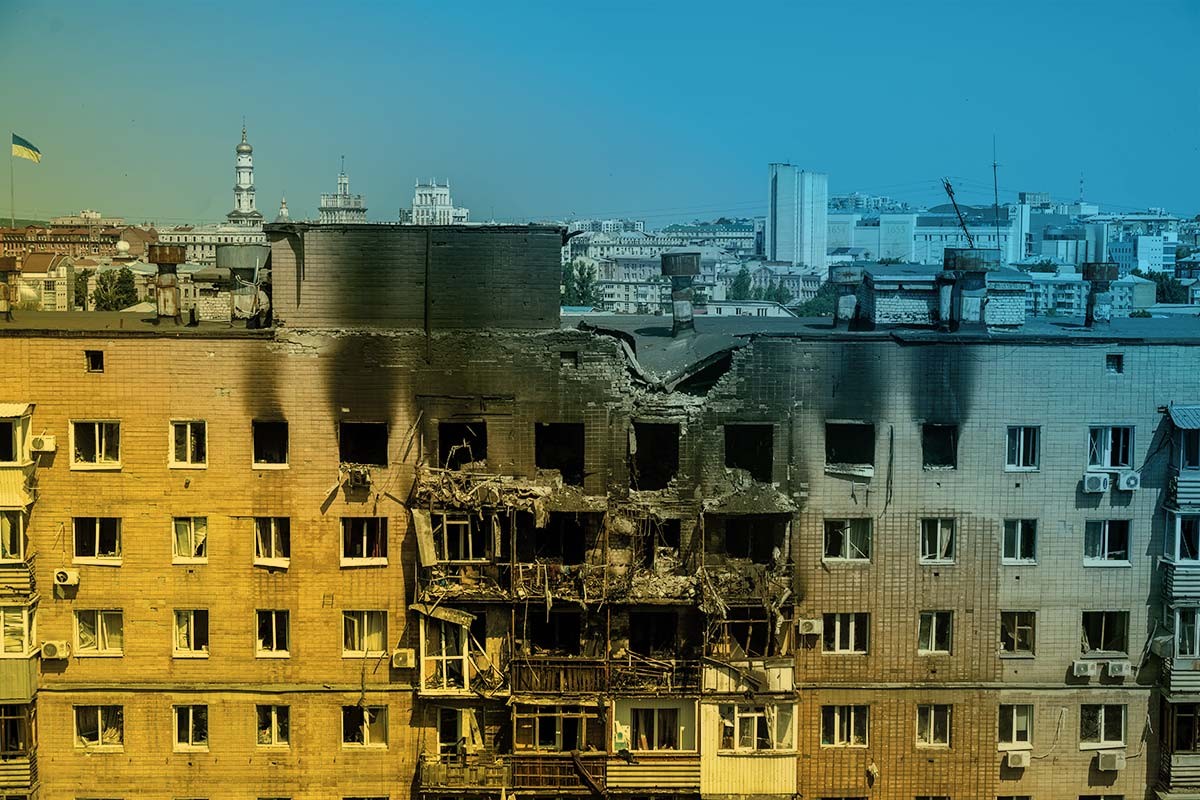Input Paper “Overview of the current situation and challenges of the European Green Deal in the Republic of Moldova”

As part of our project “Eastern Partnership Plus”, we are publishing a second series of input papers on the topic of Perspectives and Priorities European Green Deal (EGD) in Ukraine, Georgia and Moldova. The authors from the region (Nataliya Andrusevych, Manana Kochladze, Iuliana Cantaragiu) analyse the role of the European Union in supporting the implementation of the EGD and formulate their political recommendations for decision-makers in Berlin and Brussels.
By Iuliana Cantaragiu, circular economy expert
Overview of the current situation and challenges in environmental protection and climate sectors
Environmental quality in the Republic of Moldova falls below expectations, and the country will have to overcome great challenges in order to improve it. Air, water, soil quality and biodiversity indicators have shown negative trends for the past 10 years. The main sources of water and soil pollution are wastewater, solid waste and fertilizers used in agriculture. Transport is the principal source of air pollution. Given the environmental and climate pressure, forest coverage in the country, at 11.4%, is too low. Agricultural land accounts for 72% of Moldovan territory; most of it used for intensive agriculture, which has a significant impact on soil and surface water quality.
The poor quality of the environment and frequent and intensive climate events affect the country’s economy and the health and quality of life of its population.
One reason for this unhappy state of affairs is that no government of the Republic of Moldova has ever attached priority to environmental or climate protection. That these issues have figured at all on the agendas of Moldovan governments has largely been due to pressure from development partners rather than to a recognition on the part of the Moldovan government that environmental quality and quality of life are related or an awareness of the urgent need to change its approach to improve the situation.
Under the government led by Maia Sandu (June–November 2019), there were indications of an intent to place environmental protection and climate higher on the agenda, but such good intentions became irrelevant upon the dismissal of that government.
The situation in the field deteriorated after the reform of the public central authorities, which began in 2017, when the environmental, agricultural and regional development ministries were combined into one ministry. In a country in which little importance is attached to environmental issues, placing the protection of the environment in the hands of a major polluter means that any effort to protect the environment will be blocked or at least weakened. The merging of the ministries took place despite considerable efforts to prevent it on the part of civil society.
The governmental restructuring and reform that begun in 2017 was supposed to continue with reforms in sub-ministerial agencies. Unfortunately, the reforms of several such agencies, such as the forest agency, “Moldsilva”, and the agency “Apele Moldovei” (Moldovan Waters), still have not been fully implemented and several are faced with discrepancies in activity and/or accusations of corruption. As part of the same reform programme, an environmental agency was created to implement environmental policy, but it has not been equipped with sufficient staff or funding to enable it to fulfil its obligations.
Environmental protection efforts in the Republic of Moldova are hindered by a shortage in funding in addition to the challenges in institutional management and capacities. Annual national budgets have not allocated sufficient resources to environmental protection to enable the existing challenges to be addressed; sectoral strategies and programmes estimate that hundreds of millions of euros would be necessary. It is therefore quite important to re-evaluate funding in this area and streamline budgetary allocations in such a way as to ensure that financial resources are used transparently and in accordance with the priorities set out in policy documents for environmental protection and promotion of the green economy.
The focus of efforts to improve the current state of the environment should be on pollution reduction measures, a reforestation program and the conservation of biodiversity. This will require a complex approach involving reform in several areas: legislative reforms, improvement of the control and enforcement of legislation, the development and improvement of a variety of financial mechanisms and incentives for environmental projects, the improvement of the network monitoring environmental indicators, increased investment in environmental and climate projects and infrastructure, and last but not least, strengthening the environmental agencies to enable them to implement the reforms. The first step should be to re-establish the Ministry of the Environment, complete the reforms of the sub-ministerial agencies and strengthen the capacities of the environmental institutions to enable them to advocate for better climate and environment policies and enforce such policies without political interference or corruption.
The EU’s role in supporting the environmental protection and climate programs
The Republic of Moldova does not have an umbrella strategy covering sustainable development in place. The significant political instability in the country for the past few years has hindered the development of a national strategy for sustainable development by the relevant agencies. There was a national development strategy entitled “Moldova 2030” was developed 2017–2018. This strategy built around ten pillars, that took into consideration the SDGs and targets set in Agenda 2030. However, the frequent changes of government in the past years and snap parliamentarian elections prevented its formal adoption, thus the strategy never entered into force.
Nonetheless, the provisions of “Moldova 2030” have served as the basis for the strategies pursued by the member states of the European Union in their cooperation with the Republic of Moldova.
The EU’s cooperation with the Republic of Moldova takes place within the framework of the Eastern Partnership policy initiative. The legal instrument underpinning this cooperation is the Association Agreement (AA) between the European Union and the Republic of Moldova, which was signed in 2014. The AA’s purpose is to increase the stabilisation and resilience of the Republic of Moldova as a neighbouring country of the European Union and to deepen cooperation in various areas. Its provisions focus on harmonising the national legislation of the Republic of Moldova with the European Union acquis. The Association Agenda, developed on the basis of these provisions and the situation in the country, sets out short and long-term priorities and a roadmap for implementation of selected priorities. Chapters 16 and 17 of the AA are devoted to environmental protection and climate change mitigation and adaptation measures, respectively.
Monitoring of AA implementation is performed annually on the Parliamentary, Government and civil society platforms. Conditionalities built into agreements for financial support are based on the results of the monitoring of the Association Agenda and on the political situation in the country.
It should be mentioned that there is no strategic document focusing on cooperation regarding the European Green Deal in place between European Union and the Republic of Moldova.
However, the Republic of Moldova does have in place several topic-specific strategies that include provisions on emissions reductions, environmental protection, waste management and/or renewable energy. There is also an Inter-ministerial Working Group on Sustainable Development and Green Economy that was established in 2015 within the framework of the EU4Environment program for EaP countries. This working group developed the Road Map on Green Economy, which outlined short- and medium-term actions for 2018–2020 and for the implementation of the 2014–2023 environmental strategy.
There is no specific roadmap detailing how the Republic of Moldova should engage in the European Green Deal, but there is an action plan/roadmap for greening the economy, which was developed under EU4Environment program. The action plan mainly includes soft measures, such as the support of research, training programs, support in legislation development.
Whether there is sufficient political will for reform and to initiate the ecological modernisation of the country will depend on the results of the upcoming elections (11 July 2021). If pro-European parties gain a majority in the newly formed Parliament and form the new government, the chances that the reforms needed will be developed and implemented are higher. Otherwise, there is no reason to expect any major change in the status quo.
The conditionality mechanism incorporated into the microfinancing agreements between European Union and the Republic of Moldova has succeeded, to some extent, in pushing anticorruption forward in the Government agenda. It seems likely that the use of the same mechanism of conditionality within the framework of financial agreements and the openness of the European market for Moldovan products that comply with EU environmental standards will increase the Moldovan Government’s interest in incorporating the green agenda into its priority areas.
In view of the current state of the environment in the Republic of Moldova, the first reforms should focus on the reduction and prevention of pollution and on the conservation of biodiversity, including the reforestation program. Thus, wastewater management, waste management and forest management should be priority areas.
Concrete recommendations:
Short and medium term priorities in the Republic of Moldova should be on improving and enforcing legislation, investments in infrastructure, the development of financial mechanisms and incentives, capacity building in the relevant institutions and improvement and extension of the network monitoring environmental indicators.
Recommendations:
- With respect to the Eastern Partnership framework (Association countries):
- Introduce the fulfilment of good environmental governance requirements as a condition for the provision of financial, economic and sectoral support to the EaP countries and promote good environmental governance, based on a transparent and inclusive decision-making process and involving different stakeholders;
- Insist that EaP governments work towards establishing strong environmental institutions that are able to adopt and implement new policies and regulations in line with the environmental acquis of the EU;
- Establish a mechanism for monitoring the implementation – not only the adoption – of environmental laws adopted pursuant to AAs in EaP countries within the EaP Environment and Climate Change Panel, including regular reporting;
- Increase support for measures aimed at increasing environmental awareness and knowledge about environmental reforms within EaP countries governments and societies;
- Allocate a portion of the funding for the 2021–2027 period to support projects aimed at promoting the implementation of the relevant environmental legislation, as this helps to strengthen the institutional framework.
- With respect to EU Green Deal within the framework of the Eastern Partnership:
- Pay greater attention to promoting the EU Green Deal in the entire Eastern Partnership region, stressing that it entails a change in the economic course of the bloc and will directly affect the economies of the EaP countries. It is highly important to change the perception of the climate crisis as an “environmental problem” and create a greater understanding of the scale of the risks that climate change poses for the economies and financial stability of EaP countries. It is also important to create conditions conducive to learning about the potential for the development of a green, climate-neutral economy in the EaP region
References
- The environmental state of the Republic of Moldova. National report based on environmental indicators for 2015–2018, Environmental Agency, 2020, https://drive.google.com/file/d/1YD6esULO-JNJGhTmN1P8U2Ft228B8hGH/view
- Republic of Moldova. Voluntary national review. Progress report 2020, Government of the Republic of Moldova, 2020, https://sustainabledevelopment.un.org/content/documents/26346VNR_2020_Moldova_Report_English.pdf
- Applying Fiscal-budgetary instruments to solve environmental issues, Independent Think-Tank Expert Group, National Environmental Center, Alexandru Fala, Dumitru Pintea, Iuliana Cantaragiu, Ina Coseru, 2020, https://www.expert-grup.org/media/k2/attachments/Eng_-_Studiu_Instrumentele_fiscal-bugetare_aplicate_yn_domeniul_mediului_compressed.pdf
- Statement of the environmental civil society organizations on including the environmental protection and adaptation to climate change as a priority area in government activity program, 21.11.2019, https://environment.md/public/files/88fb6a189cf888d5437063a928fdd304.pdf
Iuliana Cantaragiu, circular economy expert
Gefördert durch:

![]()
Did you like thike this article? If yes, you can support the independent editorial work and journalism of LibMod via a simple donation tool.
We are recognized as a non-profit organization, accordingly donations are tax deductible. For a donation receipt (necessary for an amount over 200 EUR), please send your address data to finanzen@libmod.de
Related topics
Newsletter bestellen
Stay tuned with our regular newsletter about all our relevant subjects.





